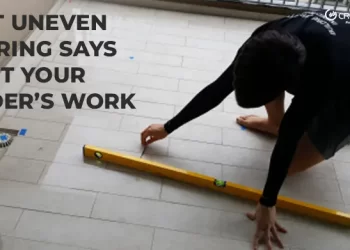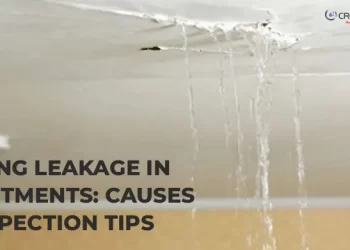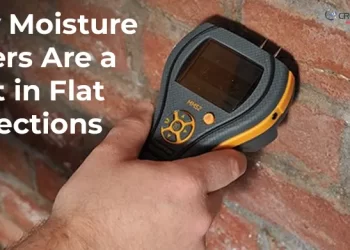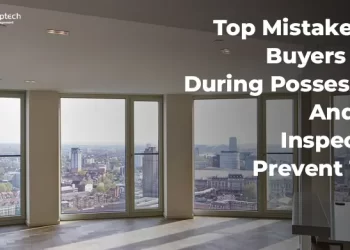Buying a newly constructed home might seem like a guarantee of quality—but not all that glitters is structurally sound. Even brand-new buildings can hide defects beneath fresh paint and shiny tiles. That’s why scheduling a home inspection at the right stages of a new construction project is crucial.
Let’s break down the ideal inspection timeline so you don’t miss the chance to catch costly issues early.
Why Inspect a New Construction Project?
It’s easy to assume that brand-new homes are problem-free. But in reality:
-
Multiple contractors work on different phases—mistakes are common
-
Project timelines are tight, leading to rushed jobs
-
Municipal inspections are limited to code compliance, not quality
-
Builders may cut corners to control costs
A professional inspection helps ensure your home is built as promised—safe, durable, and ready to live in.
Common Defects in Newly Built Homes
Even new homes can have issues like:
-
Improper slope of floors or balconies
-
Misaligned tiles and fixtures
-
Loose electrical points or incorrect polarity
-
Drainage slope errors leading to water stagnation
-
Poor-quality plastering or painting
-
Window frame rust due to exposure before sealing
Catching these early means they can be fixed before you move in—or even before finishing work starts.

Three Key Stages for Inspection
To get the most from your home inspection, consider scheduling it at three strategic phases:
1. Pre-Plaster or Pre-Finish Inspection (Shell Stage)
This is done before plastering and false ceiling work begins.
Why it’s important:
-
Plumbing lines, electrical conduits, and structural beams are still exposed
-
Any misalignments or poor workmanship can be corrected before covering
-
Prevents the need to break finished walls later
Checkpoints include:
-
Wall flatness and plumb
-
Slab alignment
-
Conduit placement
-
Plumbing pipe routing
-
Room dimensions
2. Pre-Possession Inspection
This is done once the builder calls for final handover.
Why it’s important:
-
Finishing work is complete—time to spot defects
-
You can raise issues before signing the possession document
-
Helps in negotiating last-minute repairs
Checkpoints include:
-
Water pressure and leakage
-
Switchboard function and earthing
-
Tile gaps and hollowness
-
Door frame and window installation
-
Drain flow and balcony slope
3. Post-Possession or Pre-Move-In Inspection
Done just before or after you move in (if you missed earlier stages).
Why it’s important:
-
Ensures your home is livable and defect-free
-
Useful if you discover issues after moving furniture or during early usage
-
Can still help in warranty claims if within the builder’s defect liability period
Checkpoints include:
-
Damp spots or water stains
-
Minor cracks due to drying
-
Ventilation and exhausts
-
Appliance fittings and leakage points
Should You Do All Three?
Ideally, yes. But if you must choose one, Pre-Possession Inspection is the most crucial.
It offers maximum visibility into final quality—and you’re still in a position to request rectifications.
Who Should Attend the Inspection?
While the inspection will be conducted by a certified professional, it’s highly recommended that the following individuals be present:
-
The Homebuyer or Owner – Your presence allows you to see potential issues firsthand and ask questions in real-time.
-
A Real Estate Agent (optional) – They can help interpret findings and facilitate any necessary follow-ups.
-
The Seller (in resale scenarios) – Their presence can be useful for immediate clarification or negotiation on discovered issues.
Being present during the inspection ensures transparency and helps you understand the property’s actual condition beyond the report.
Conclusion
New homes may look flawless, but don’t let the gloss fool you. Scheduling professional inspections at key construction milestones ensures you’re not buying problems hidden under the surface. Whether it’s checking plumbing before plastering or verifying slope alignment before keys are handed over—timing your inspection right is a smart, stress-saving move.
Protect your dream home. Inspect it before you invest in living in it.
FAQ
1. Why do I need an inspection if the builder offers a warranty?
Warranties often cover only major structural faults. Inspections catch functional, aesthetic, and safety issues early—before you’re stuck with them.
2. Is one inspection enough?
One is better than none, but a phased approach ensures quality throughout the construction. The earlier you find problems, the easier they are to fix.
3. Will the builder allow a third-party inspector?
Most reputable builders do. Inform them in advance and coordinate timings with the site engineer or CRM team.
4. What if I already took possession—can I still get an inspection?
Yes. Post-possession inspections are common and can help with builder warranties or prioritizing your repair list.
5. How long does each inspection take?
Anywhere between 2 to 4 hours, depending on the size of your home and inspection depth.







